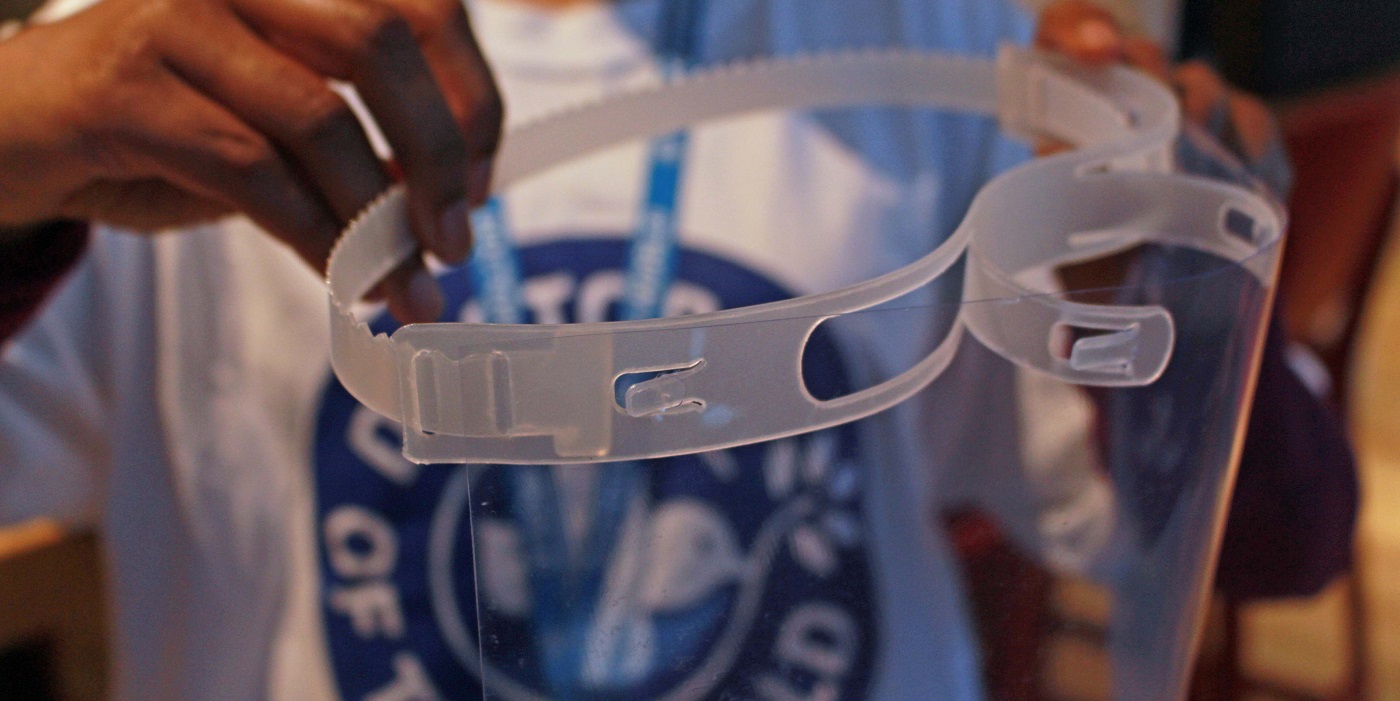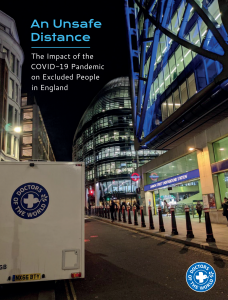An unsafe distance: the impact of the COVID-19 pandemic on excluded people in England
Published 22nd May 2020
Excluded groups such as sex workers and asylum seekers are being left behind in the UK’s COVID-19 response as control measures amplify existing health inequalities and put life-saving advice and care further out of reach.
The closure of services and some GP registrations, a lack of access to technology, distrust and fear of authorities, unsuitable or insecure accommodation, and reduced income are among the many challenges facing people in vulnerable circumstances in England.
Doctors of the World UK has carried out a Rapid Needs Assessment (RNA) to better understand the experiences of excluded groups at the height of the COVID-19 pandemic, read our report outlining the study’s key themes and recommendations for removing barriers to information and healthcare .
You can read the full Rapid Needs Assessment here.
Working with service providers and people with lived experience, our researchers looked at the pandemic’s effect on a wide range of groups: refugees; people seeking asylum, including unaccompanied asylum-seeking children; undocumented migrants, including survivors of trafficking; people in and recently released from immigration detention; people experiencing homelessness, Gypsy, Roma and Traveller communities; sex workers and people recently released from prison.
“Prior the pandemic, people in these groups already had poor access to health services,” said Doctors of the World UK Director of Programmes, Lucy Jones.
“The pandemic has created additional barriers, reducing these groups’ access to healthcare and services further. Many do not have the resilience to cope with further deteriorations in their circumstances.”
Pandemic amplifies inequalities
Participants in the RNA reported being unable to follow guidance on physical distancing and shielding because of unsuitable accommodation, being cut off from vital services and support networks, being unable to access advice and healthcare for COVID-19 and other health problems, and struggling to afford mobile data and food.
“The RNA’s findings show COVID-19, and the government and societal response to it, have significantly impacted the health needs of these groups and widened the health inequalities they experience,” said Jones.
She said many people belonging to the identified groups were likely to have: a higher risk of being exposed to the virus; a higher risk of health conditions that increase clinical vulnerability to COVID-19; and reduced access to and utilisation of healthcare services, putting them at increased risk of COVID-19 infection and associated serious health outcomes.
“They are also more vulnerable to adverse impacts – as a consequence of the pandemic – on the social, economic and environmental factors that influence health and well-being,” she said.
“COVID-19, and measures taken to control it, have pushed many individuals and families living in vulnerable circumstances into situations of actual or near crisis.”
Collaboration and inclusion more important than ever
Chantelle Ntombi Matai, VOICES Network and Doctors of the World UK advisory board member, said GPs, hospitals and public authorities must work together to ensure everyone is included in the policies and services provided.
“This report shows why we really need a stronger approach to make sure the right, accessible information and the support reach every corner of our community. This is only possible with the right training and awareness,” she said.
“It offers a unique reflection on the new reality created by this disease, and why we need collaboration and inclusion more than ever.”
Recommendations for change
The RNA makes 12 recommendations, identifying actions that must be taken to address the identified needs in both the immediate and longer-term.
These include developing and disseminating guidance that can be understood by all people, ensuring it is accessible for people who don’t have access to digital services and immediately suspending hostile environment policies that restrict access to public services for migrants in vulnerable circumstances.
“There are already some examples of positive actions undertaken to enhance inclusion during the COVID-19 crisis, including the provision of accommodation to people experiencing homelessness. Steps should be taken to ensure these are sustained and built upon,” said Jones.
You can view of the key themes below.
Click here to read the full needs assessment and detailed recommendations for government, statutory bodies and service providers in the UK.

